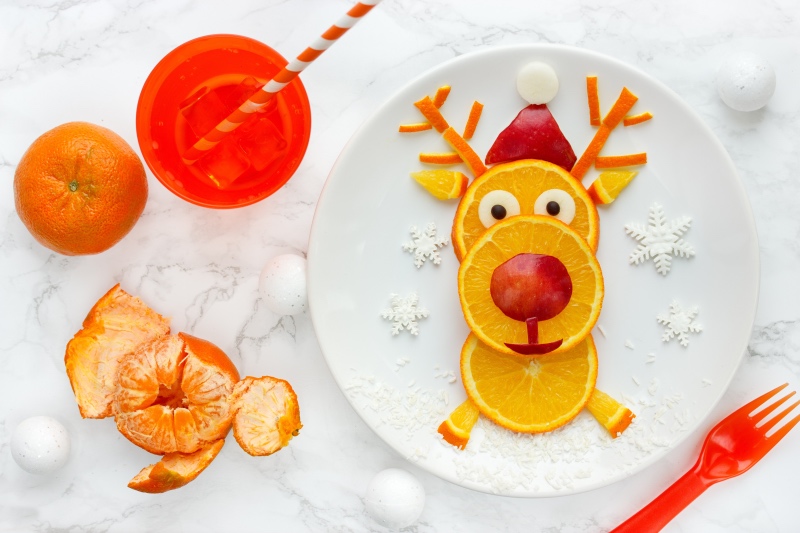
In an article first published on The Conversation, CLARE COLLINS, of the University of Newcastle in Australia, provides some tips for avoiding the excess calories this Christmas…
Christmas and the holidays are a time to relax and celebrate with family and friends. But the festive season can also be a time of unwanted weight gain that won’t budge once the holidays are over.
Research (mostly from the United States) has found adults typically gain 400 to 900 grams over the holidays.

You don’t have to miss out on Christmas celebrations. PICTURE: Shutterstock
“No-one wants to miss out on the celebrations. But knowing more about the kilojoule content of your favourite Christmas treats can help you make conscious decisions about which foods and drinks to have and enjoy, and what portion sizes to choose.”
No-one wants to miss out on the celebrations. But knowing more about the kilojoule content of your favourite Christmas treats can help you make conscious decisions about which foods and drinks to have and enjoy, and what portion sizes to choose.
Check the comparisons below, and how much housework or the number of steps you’d need to take to expend that same number of kilojoules. (Note: calculations are based on an adult weighing 70 to 80 kilograms.)
Try this for starters
Which of these pre-dinner snacks is worth the effort:
A large handful of potato crisps containing 550kJ, which would take 32 minutes of vacuuming or 3294 steps to work off?
Or a handful of fresh cherries (about ten large or 15 small ones) which contains about 150kJ? This would take only 8.5 minutes of vacuuming or 880 steps to work off.
Here comes the main course
Two slices of roast pork and a 30g (matchbox size) piece of crackling contains about 1,415kJ. This is equivalent to spending 54 minutes cleaning windows or taking 8,500 steps.
If you substitute the pork for 12 medium prawns (about 70g) at 260kJ, this is equivalent to ten minutes of washing windows or taking 1,560 steps.
Sweet swap
If you eat one-eighth (about 90g) of a large plum pudding, you will have consumed about 1,080kJ. You’ll need to take about 6,350 steps to walk it off, or spend 41 minutes raking up leaves in the garden.
In contrast, one 25g rum ball contains about 350kJ, equivalent to 2,060 steps or 13 minutes of raking leaves.
Even better, half a cup of fresh fruit salad at 250kJ is equivalent to 1,470 steps or approximately nine minutes of raking leaves.
How to focus more on celebration
It’s possible to have fun at Christmas and celebrate the time with family and friends while reducing your focus on food. Here are some tips to get you started:
• use this calculator from the 8700.com.au website to check the kilojoules and exercise equivalents in you favourite Christmas foods and drinks.
• think about the food and festive traditions you want to pass on to your family. These are what your children and grandchildren will remember. Making some of these healthful options means you are building health and well-being into your celebrations.
• put in extra effort in to decorate your Christmas table so it looks more special than the food. Having family rituals is associated with better child health, school achievement, adolescents’ sense of personal identity and having stronger family relationships.
• think about your Christmas food budget and try to stick to it. Going for less total food but better quality in your budget can help avoid food waste and reduce stress related to finances and food security.
• if Christmas home cooking is a part of your routine, plan to give some away as gifts. Or, think about spending less time in the kitchen cooking and more time contacting those you have not been in touch with for a while.
• plan some fun, post-dinner Christmas activities. Set up some old-fashioned physical games, like a hookey board, a set of skittles, or boules. Make playing compulsory before dessert is served!
Try not to feel guilty
You’d think people who stress about food would have healthier eating habits, but the research shows that this isn’t the case.
One study found that people who associated eating chocolate cake with guilt, rather than a celebration, had eating habits that were less healthy, especially when they were under stress.
Aside from avoiding over-eating, having a focus on enjoying healthy foods as well as some self-compassion can help improve your relationship with food.
Clare Collins is professor in nutrition and dietetics at the University of Newcastle This article is republished from The Conversation under a Creative Commons license. Read the original article.





